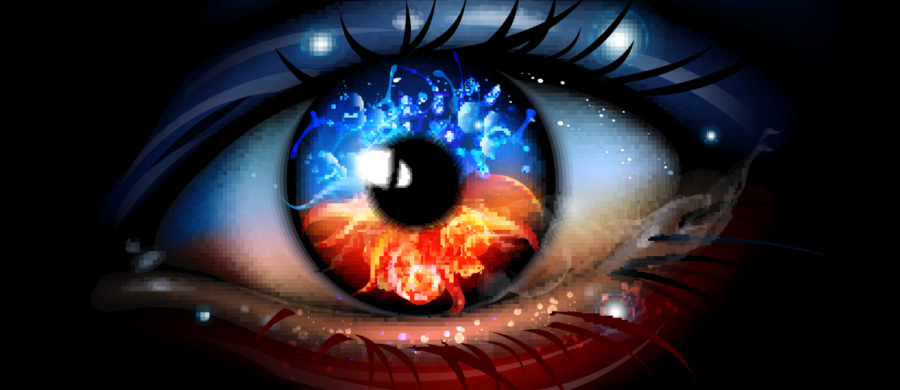When Wildfire Smoke Affects your Eyes
Tips for Relief from Stinging, Burning and Redness
by Donald McCormack, M.D.
Ophthalmologist
Boulder Medical Center
Smoke in the air from wildfires causes eye problems for many in our community. Irritated, dry eyes and vision problems have been common in my clinic, and with forecasts predicting continued dry weather, smoke will continue to be a challenge. Here are some ways to alleviate symptoms:
Eye Irritation
Stinging, burning, redness, and tearing happen when smoke particles act like tiny foreign bodies in our eyes. Try these solutions:
Reduce smoke in your immediate environment
- Close Windows
- Turn on Central Air Conditioning and Keep Filters Clean
- Place Humidifiers Where You Read or Sit
- Use an Air Purifier – Preferably one that Does Not use Ionizers
Dilute Eye Irritants
- Use artificial tears like Refresh Optive or Systane Ultra up to six times daily. Preservative-free versions can be used as needed.
- Avoid eye washes or rinsing eyes with tap water. Both can alter the chemical makeup of your tears, which relieves irritation.
Allergic Reactions
Small particles in smoke can cause allergic reactions in your eyes. For relief:
- Use anti-allergy drops like Alaway or Zaditor twice a day.
- Apply ice water on a washcloth to closed eyelids. This can stabilize cells that release the chemicals causing your symptoms.
- Avoid rubbing your eyes.
Dry Eyes
Tears are made up of water, protein, and oil. The balance of these components is important for eye comfort and good vision. A disruption of that balance can lead to symptoms like burning, stinging, redness, filmy vision and even excess watering of the eyes. Smoke in the air can cause a change in the makeup of tears in two ways: gases in smoke can cause more evaporation of the water component of tears, and toxins and particulates can cause an increase in protein production.
Several things can help relieve symptoms of dry eyes due to smoke:
- Artificial tears such as those mentioned above can help restore the proper balance of tear components
- Tear duct plugs can be placed in the natural tear drainage openings in the eyelids to help keep natural tears in the eyes for longer. These are painless to insert and last for about three months before dissolving on their own
- Prescription medications like Restasis and Xiidra can help with increasing tear production.
Decreased Vision
If the smoke is bad enough, it can cause some people to have temporary vision changes. Irritation of the conjunctiva – the mucous membrane that covers the front of the eye and lines the inside of the eyelids — can cause blurriness. Moderate to severe dryness can even cause damage to the surface cells of the cornea. Since the cornea cells are an important part of “bending” light into the eyes, disruption to the surface can cause decreased visual acuity. Treating the eyes can help to heal that damage and restore the vision.
If you are bothered by smoke in the air, and these suggestions do not help your symptoms, contact your ophthalmologist.
About Dr. Donald McCormack
 As an ophthalmologist, Dr. McCormack diagnoses and treats all eye diseases prescribes eyeglasses and contact lenses to correct vision problems, and performs a wide range of clinical procedures and more complicated eye surgeries. He has special interests in treatments for dry eyes and glaucoma and has been a principal investigator in numerous clinical research trials for these conditions.
As an ophthalmologist, Dr. McCormack diagnoses and treats all eye diseases prescribes eyeglasses and contact lenses to correct vision problems, and performs a wide range of clinical procedures and more complicated eye surgeries. He has special interests in treatments for dry eyes and glaucoma and has been a principal investigator in numerous clinical research trials for these conditions.
Originally from Ames, Iowa, Dr. McCormack has been with the Boulder Medical Center since 1993. Here is a partial list of the services he provides:
- Complete Eye Exams for Adults and Children
- Cataract Surgery – Standard, Toric and Multifocal Lenses
- Glaucoma – Medical and Laser Treatments
- Diabetes – Retinal Laser Surgery
- Dry Eyes – Medical Treatments and Punctal Plugs
- Glasses and Contact Lenses
This article is not intended to substitute for professional advice, diagnosis, or treatment. Always seek the advice of your physician.

